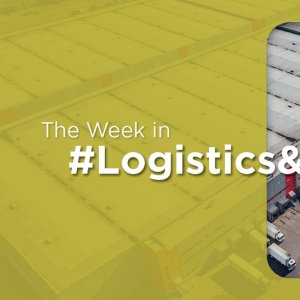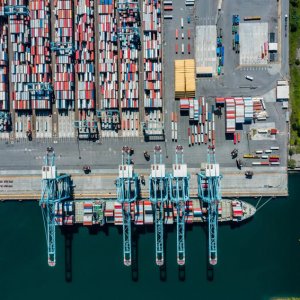
Delivery, CX Determine Outcome of E-Commerce Battle
 By Cas Biekmann | Journalist and Industry Analyst -
Thu, 11/11/2021 - 12:09
By Cas Biekmann | Journalist and Industry Analyst -
Thu, 11/11/2021 - 12:09
You can watch the video of this panel here.
E-commerce experienced unbelievable growth during the past two years, boosted by an unusual mix of circumstances. Analysts expect the boom to continue. Mexico’s leading e-commerce players state that enhanced delivery times and spotless customer experiences will decide which platforms users will gravitate toward.
The global pandemic set off explosive growth for online sales. Data from Google’s Euromonitor shows that e-commerce is not just here to stay but will continue its expansion with a 225 percent growth up to 2025. “We are living in times of fierce competition and huge possibility to grow,” said Alvaro de Juan Iriarte, CEO, iVoy, a delivery service company. In the battle for the optimal market share, companies are forced to modernize rapidly and continuously. Offering fast and efficient delivery and meeting client expectations are the crucial demands to be met in this process.
“Everyone is innovating constantly,” said Ignacio Caride, SVP eCommerce, Payments and Financial Services Mexico & Central America, Walmart, told MBN. In the past, companies such as Walmart would be able to offer multiple-day deliveries and clients would be satisfied. Now, potential customers expect same-day deliveries at least, with some even wanting to see their products arrive within the hour. To meet this stringent demand, new technologies are essential: “We can improve the purchasing and delivery process every day by using technology, as well as lower costs,” Caride said.
David Geisen, Country Manager & VP Marketplace Mexico, Mercado Libre, agrees on the importance of technology. According to Geisen, “the winners and those able to retain clients are companies that offer the best customer experience.” And there are a few factors that ensure a client is contented: the best offer, availability of products, the lowest price and fast delivery. For this reason, Mercado Libre offers over 50 million products on its Mexican platform alone. Alejandro Solís, Director General México and Costa Rica, Rappi, highlighted that availability throughout all of Mexico is important but sales are also key. “Varied and segmented promotions help to retain users and possibly get back the ones that had a bad experience,” said Solís.
Client retention, however, is not the end all solution, said Marinus van Gestel, Head of Latin America at Uber’s recently acquired Cornershop app. “Client retention is less of an issue standing on its own and more about streamlining the purchasing process in general,” he said. This includes easy logins, simple one-click payments and integration between apps. Because Cornershop employs pickers, people that seek out the goods in supermarkets and then deliver them to clients, their unavailability can cause friction. These potential put-offs need to be removed via smooth communication between picker and customer. If clients are satisfied, other e-commerce platforms can benefit further. “Good experiences are essential for other e-commerce efforts too. If people consistently like their experience, they will purchase other goods online too,” said Geisen.
Pressure to Deliver
The experts see that delivery times are an especially important skirmish within the wider battle. “We are obsessed with the idea of reducing delivery times. In our surveys, 70 percent of users really value that their products arrive within 48 hours,” Geisen emphasized. To make this happen, Mercado Libre relies for 84 percent on its own, recently constructed logistics network.
For Solís’ Rappi, some verticals cannot be fully controlled as per their nature. Food deliveries, for example, rely on restaurants to prepare food and delivery drivers to move it to the customer. Despite the obvious challenges, Rappi does what it can to take control of the process. “We predict cooking times and factor in issues that could complicate delivery such as rain,” he said, adding that complying with client expectations is essential.
Indeed, not everything needs to move at the same pace. “There is a difference between delivering an urgent missing ingredient and planned purchases so these issues have different cost attached to them. Not everyone needs their weekly groceries or a brand new flatscreen TV within the next hour,” explained Caride. For this reason, Walmart delivers most of its products and groceries in less than 3 hours. Flexibility and communication with the client are essential to strike a balance between cost and convenience, said De Juan Iriarte: “iVoy can be incredibly fast, but faster deliveries cost more. We need to ask what clients want to pay in return, or who else will foot the bill.”
This shifts the focus to extremely quick commerce, or Q-commerce, which delivers within 15 minutes. “We are seeing this grow rapidly elsewhere in the world and companies are raising capital to make it a success. It is important for us to be a part of this development, though we need to be careful to not blindly follow trends,” said Solís, pointing to Rappi’s Turbo-Fresh service, which works efficiently in densely populated zoners. Van Gestel argues that for Cornershop, Q-commerce is not as important as offering a wide catalogue of products with reasonably fast deliveries. “It is an interesting development, but it is too early to see if it is really essential,” he said, underscoring a Goldman Sachs study that revealed that only 5 percent of China’s mature e-commerce market needs Q-commerce delivery speeds. When prompted to pay more, many clients appear to be happy with one-hour deliveries instead.
“People see something in it, but I am not a major believer,” highlighted Caride. Like van Gestel, he said low prices and reasonable delivery speeds are more important for his company. “Just like in China, we see that Mexicans prefer to wait a bit longer instead of paying more, except in rare urgent cases,” stated Caride.
Geisen does think that for products other than groceries, it is important to deliver as fast as possible. But how quick the process goes is limited by the proximity of products in warehouses to the location of end-users. For this reason, Mercado Libre tracks these locations and seeks to be able to accurately estimate exactly how fast the company can distribute by enhancing the visibility off the process.
E-commerce companies continue to innovate to become more sustainable too. Electric vehicle (EV) fleets, possible drone deliveries and sustainable packages are just some of the main developments available.
















